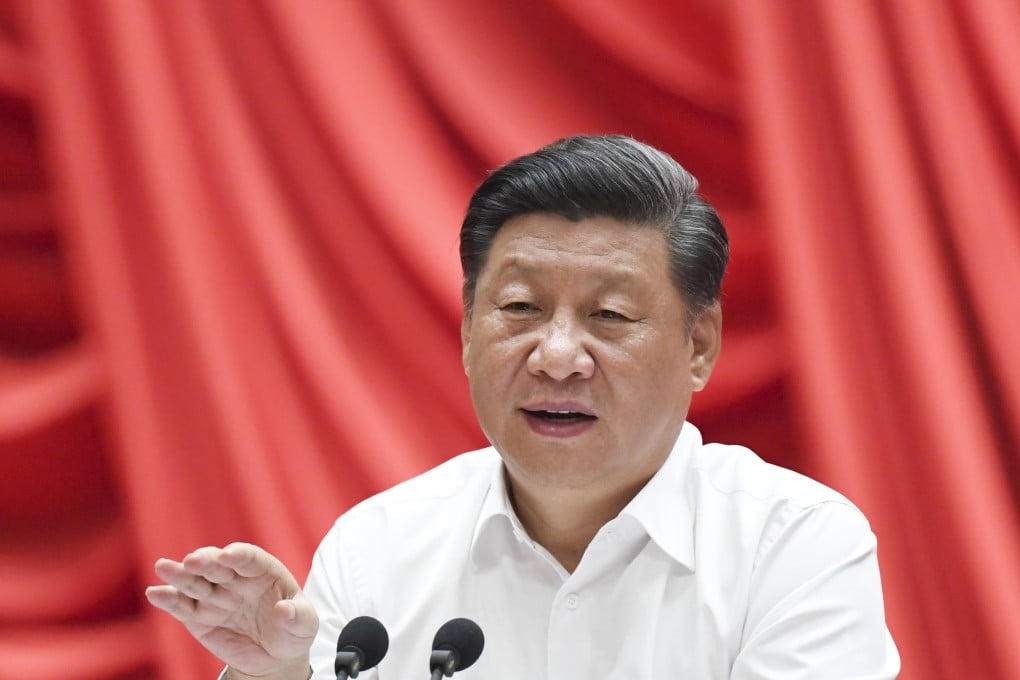Advertisement
Xi Jinping rallies China for decades-long ‘struggle’ to rise in global order, amid escalating US trade war
- Chinese president used a word translating from Chinese as ‘struggle’ almost 60 times in a speech summary published by state media
- Xi did not directly refer to the US-China trade war, but made clear Beijing will not make concessions over ‘core issues’ or change its model of governance
Reading Time:4 minutes
Why you can trust SCMP

Chinese President Xi Jinping has rallied Communist Party cadres to meet the country’s coming “struggles” and ensure a “great national rejuvenation” by 2049, signalling that China is preparing for continued friction with the US and other Western powers over the next three decades.
In a speech on Tuesday, Xi said China must go through “great struggles” to achieve the “Chinese dream” of national rejuvenation – a term popularised under the rule of Xi, who could stay in power China well beyond the previously standard two five-year terms.
Xi said the country will inevitably undergo “all manner of struggles” before it becomes a “powerful socialist country” in time for the 100th anniversary of its founding as the People’s Republic of China, which takes place in 2049.
Advertisement
Xi was speaking at the opening ceremony of a training programme for young and middle-aged officials at the Central Party School, the training base of senior Communist Party cadres.
His emphasis on “struggle” – a term that can also be translated from Chinese as “fight and argue” – comes as a rising China under one-party rule is in the grips of a bitter trade war with the United States. Tensions are also high on geopolitical and ideological fronts, with rising suspicion and mistrust of China throughout the West.
Advertisement
Advertisement
Select Voice
Select Speed
1.00x